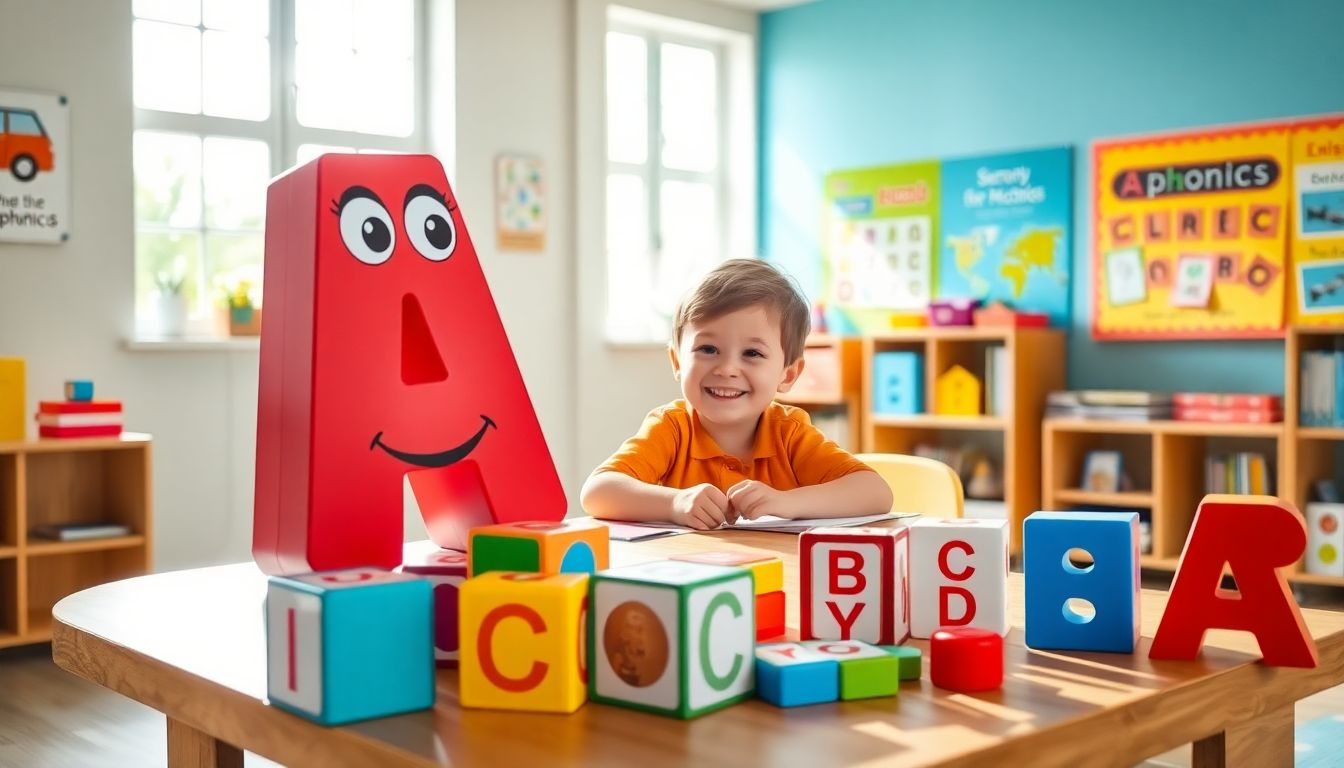
Unlocking Literacy: What Phonics Can Do for Your Child’s Reading Success
Introduction
Building strong reading skills early on lays a foundation for lifelong learning. Kids who learn to read confidently do better in school and beyond.
More educators and parents now see phonics as a key part of understanding how words work. Understanding how phonics helps kids read quickly and accurately boosts their confidence.
If you want your child to become a fluent reader, it’s important to know what phonics can really do for them.
The Science Behind Phonics: How It Works and Why It Matters
Understanding Phonics and Its Role in Reading Development
Phonics is a method that teaches children the relationship between sounds and letters. Unlike whole language approaches that focus on whole words, phonics helps kids sound out words piece by piece.
When children understand that each letter or letter combo makes a specific sound, they can decode new words more easily.
The Cognitive Benefits of Phonics Instruction
Research shows that phonics strengthens the pathways in your child’s brain that process language. It helps kids break down unfamiliar words by sounding them out.
This process improves their reading accuracy and fluency, which means they get better at reading smoothly and correctly.
Evidence-Based Success of Phonics in Early Education
Schools that use phonics programs see big improvements. Studies show children learning with phonics programs read faster and make fewer mistakes.
Many literacy experts agree that phonics helps all children, including struggling readers, become better at understanding texts.
Key Benefits of Phonics for Your Child
Improved Reading Accuracy and Fluency
Phonics gives kids the tools to decode words on their own. They can figure out words quickly and read more smoothly.
Kids who learn phonics tend to read faster and understand more for their age group, helping them enjoy reading more.
Enhanced Spelling and Vocabulary Skills
Learning phonics boosts phonemic awareness, which is the ability to hear and identify sounds. This skill makes spelling easier because kids understand which sounds go with which letters.
It also helps expand their vocabulary as they recognize how words are built from sounds.
Increased Confidence and Motivation
When kids can sound out words, they feel more confident. This confidence encourages them to read more often.
Confident readers are more likely to get excited about books and develop a love for reading that lasts.
Foundation for Future Academic Success
Strong phonics skills support better writing and comprehension skills later on. Kids with good decoding skills can focus more on understanding what they read.
Research links early phonics success with higher grades and better overall literacy as children grow.
How to Incorporate Phonics into Your Child’s Learning Routine
Practical Strategies for Parents
Turn learning into fun with simple games and activities.
Use phonics apps, flashcards, or sing songs that emphasize letter sounds.
Read aloud together and point out sounds in words.
Choose phonics programs made for your child’s age for targeted learning.
Collaborating with Educators and Schools
Talk with your child’s teachers about their phonics instruction.
Ask how you can support learning at home through extra practice.
Sharing information helps make sure your child gets consistent help everywhere.
Utilizing Technology and Resources
Many online tools make phonics fun.
Look for apps or websites that use games and videos to teach sounds and letter recognition.
Always pick trustworthy programs backed by research to ensure quality learning.
Addressing Common Challenges and Misconceptions
Overcoming Resistance to Phonics Teaching
Some kids might be hesitant or frustrated.
Make learning playful and praise their efforts often.
Be patient and encourage small successes to keep motivation high.
Clarifying Myths and Facts about Phonics
Many believe phonics only helps struggling readers. Not true.
Research shows that everyone benefits from learning how sounds connect to letters.
Phonics is a universal tool that helps all children become confident readers.
Recognizing When Additional Support Is Needed
If your child struggles despite practice, watch for signs like trouble sounding out words or slow reading.
Consult a reading specialist or speech-language pathologist for tailored help.
Early intervention can prevent bigger issues later.
The Future of Phonics in Literacy Education
Emerging Trends and Innovations
New technologies like AI-based programs now adapt to each child’s needs.
These tools make phonics lessons more interactive and effective.
Research continues to prove that phonics remains essential for literacy success.
Policy and Curriculum Changes
Many schools are adopting structured literacy programs rooted in phonics.
Parents should stay informed and advocate for evidence-based teaching methods.
A solid phonics foundation ensures children are well-prepared for future learning.
Conclusion
Phonics can truly transform the way your child learns to read. It builds confidence, fluency, and a love for words.
Early phonics education isn’t just about decoding—it’s a gateway to academic success. Starting right now, you can include phonics activities in daily routines.
By doing so, you help your child unlock a world of stories and knowledge waiting to be discovered.
0 Comments